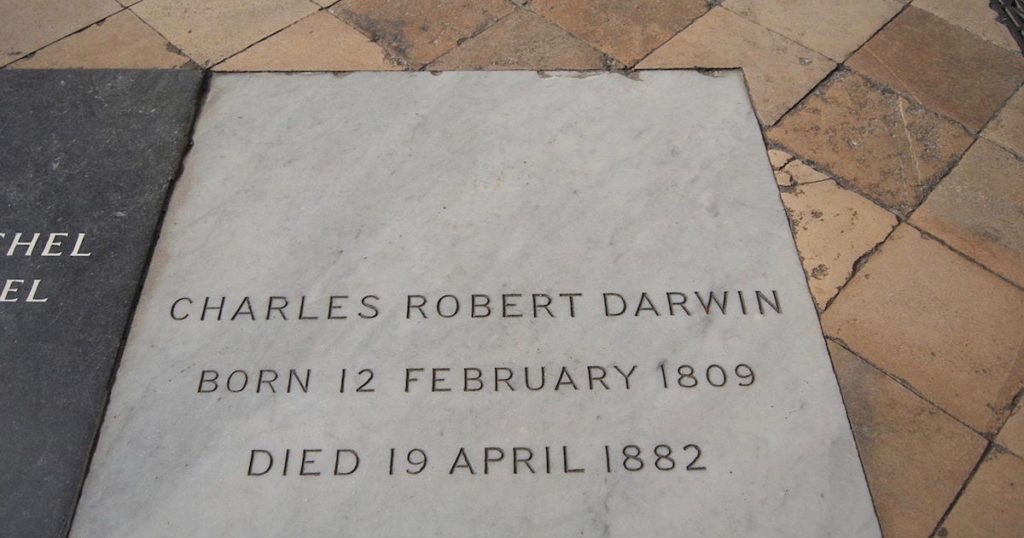 Bioethics
Bioethics
 Evolution
Evolution
For Darwin, Timing Was Everything

Editor’s note: We are delighted to present a new series by Neil Thomas, Reader Emeritus at the University of Durham, “Charles Darwin and the Ghost of Epicurus.” This is the fourth article in the series. Look here for the full series so far. Professor Thomas’s recent book is Taking Leave of Darwin: A Longtime Agnostic Discovers the Case for Design (Discovery Institute Press).
Charles Darwin, as we saw yesterday, while largely innocent of formal philosophy, pulled off an intellectual coup against the major thinkers of the Western tradition. How did he do it? The ostensible anomaly may be explained by attending to the precise timing of the publication of the Origin of Species in late 1859 (almost a century after David Hume’s floruit). Darwin had a pencil sketch of his major points by 1842 but for reasons linked variously with such factors as personal dilatoriness and fear of ecclesiastical censure, allied to concern for his wife’s religious susceptibilities, he did not complete his grand project until Alfred Russel Wallace’s famous Ternate letter1 bounced him into action (Darwin being now newly fearful of the competitor snapping at his heals).
The almost two-decade delay might, however, be construed as being providential for Darwin. Indulging in an historical hypothetical, we may speculate on what might have been the effect had he, instead of sitting on his magnum opus for more than two decades, published his Origin of Species when he could — and when many friends and colleagues thought he should — have published it, that is, not too long after his first pencil sketch of the Origin in the period circa 1842-9. In that scenario it seems unlikely that Darwin’s work would have gained the kind of resonance it was to achieve in the 1860s because, crudely put, that lack of nerve commonly termed the Victorian crisis of faith was more a feature of the latter part of the 19th century than of its earlier decades.
A Crisis of Faith
As Owen Chadwick once observed, “the liberal ideal of freedom to choose how or if to profess faith was realized in Europe between 1860 and 1890”,2 ushering in the beginnings of that free market of opinions with which we are now familiar in our modern, pluralist democracies. The years 1859-60 have a further significance in this new tendency towards secularization and provide a useful caesura for the periodization of the intellectual life of the Victorian era. The year 1859 saw the publication not only of Darwin’s Origin of Species but of John Stuart Mill’s On Liberty, a clarion call to individual liberty against the tyranny of majorities. The year 1860 witnessed the famous Wilberforce vs. Huxley debate in Oxford and also the publication of the bland-sounding but theologically explosive Essays and Reviews, a collection of philosophical essays authored by seven ultra-liberal Churchmen.3
Bland-Sounding but Explosive
These essays, taking their cue from the German Higher Criticism of the Bible shunned in the context of the orthodox and conservative religion favored by the Oxford of the earlier decades of the 19th century, brought cool analytical eyes to the Bible via methods of textual analysis hitherto applied only to non-Christian texts such as the historical work of Thucydides. Seemingly as if to atone for Oxford’s hold-out against Enlightenment thinking for the best part of a century, the essays revisited the disparate textual traditions on which the Bible came to be based “with no presumption of inerrancy” on the part of its original scribes to use the phrase of the poet Samuel Taylor Coleridge, who early on saw the Bible as having rested on inspiration and yet “an inspiration guided by fallible human hands.”4
Nobody was more aware of the implications and probable repercussions of the essayists’ views than Oxford’s bishop, Samuel Wilberforce, who identified the intellectual progenitors of the volume as having been the German rationalists, themselves the heirs of the 18th-century English deists.5 He noted with some displeasure that the Essays and Reviews had been welcomed most joyously of all by “brother unbelievers.” Wilberforces’s barb was both pointed and prescient, putting its finger on the burgeoning naturalistic turn asserting itself in British intellectual life after mid-century.
The March of Naturalism
By the time that Darwin came to publish his Origin, the educated public had inter alia been exposed to the idea that the Bible was myth, God was a projection of mankind’s own needs (Ludwig Feuerbach via George Eliot’s translation into English of Das Wesen des Christentums or The Essence of Christianity in 1846), that there were no spiritual forces in the universe, and that men and women were a form of carbon. In a sense the Origin of Species rode the tide of these new materialist currents and so appears to have been published at a particularly propitious time. For it is clear that, by the time Darwin came to publish, the intellectual temper amongst the British intelligentsia had changed quite markedly from the defensive clerical conservatism which had characterized the earlier decades of the 19th century.
Rationalism of one shade or another had in fact been slowly developing as a growing force in British intellectual life for over a century, as is confirmed by the historical record. John Toland had long since published his Christianity Not Mysterious (1696) where he commended a reasonable form of religious observance sans miracles. In the following century, the German writer Lessing, influenced by the theologian Hermann Reimarus, advanced a non-literal understanding of Christianity which might be seen in retrospect as one of the first salvoes leading towards the later trend of what is now termed Biblical demythologization. Europeans in the new, scientific age had begun to be more drawn to the ethical message of Christianity than to supernatural elements no longer accepted as being proofs of that message. It was the intellectual endorsement of that current of thought by the seven reviewers which helped give Darwin’s work the “pass” it needed to prevail in the face of conservative holdouts. By 1860 many persons were actively willing there to be natural rather than miraculous answers to their questions about the world they inhabited.
Next, “Darwin and the Newtonian Metanarrative.”
Notes
- Wallace’s communication sent to Down House from the island of Ternate indicated a considerable overlap between his ideas and those of Darwin.
- Owen Chadwick, The Secularization of the European Mind in the Nineteenth Century (Cambridge: Cambridge UP, 1975), p. 27.
- For information on this subject I am indebted to Josef F. Altholz, Anatomy of a Controversy. The Debate over ‘Essays and Reviews’(Aldershot: Scolar Press, 1994).
- In his posthumous Confessions of an Enquiring Spirit (1840). Thomas Arnold, Headmaster of Rugby, was another early proponent of what became known known as the historical-critical approach to the Bible.
- It may be noted that for Matthew Tindall in his Christianity as Old as Creation (1730) Christianity meant little more than good citizenship. He pointed out that many had lived before the time of Christ, so how could such ancestors be “justified”? Tindall’s answer: by their reason, not by faith.


